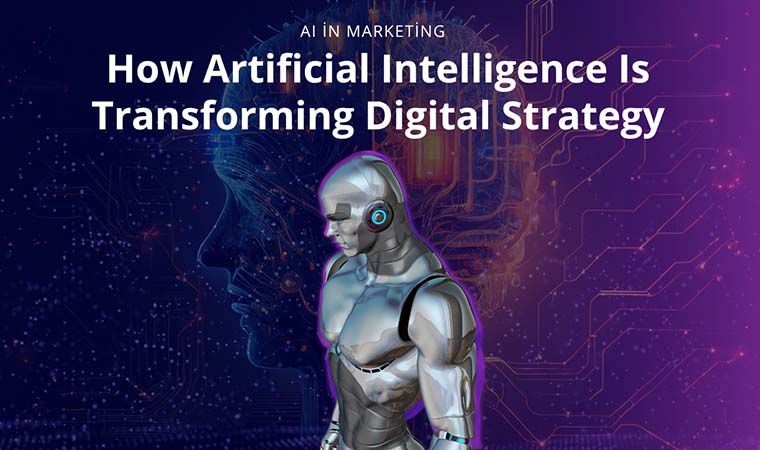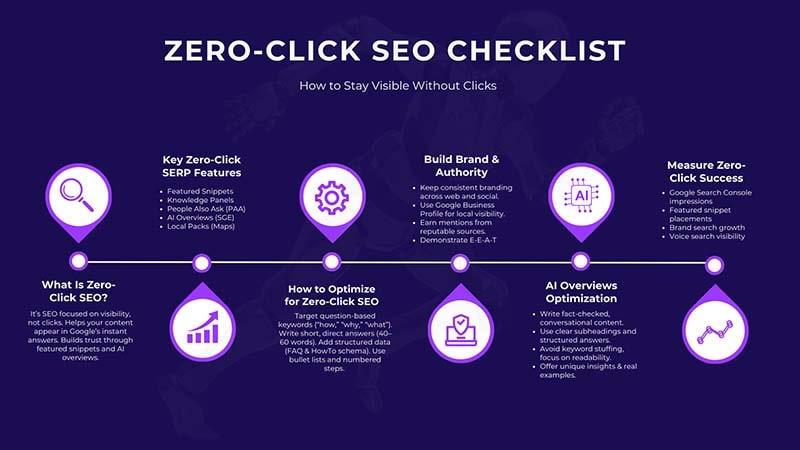The use of artificial intelligence is the driving force behind the rapid digital marketing evolution, which is bigger and faster than ever before. Companies are drowning in customer data today, and machine learning helps turn that data into valuable information. Brands can use AI-powered instruments to bring the customer experience to a more customized level, to foresee the customers’ buying habits and to make marketing tasks that are repetitive be done automatically.
Marketing AI is not a thing to be expected in the far future, but it already has a great impact on the shape of businesses’ strategies of customer attraction, engagement, and retention. The utilization of AI in marketing has revolutionized the entire industry and is no longer an idea from the distant future but a daily reality. AI tools are performing the task of delivering the proper message to the right person at the right place, utilizing chatbots and predictive analytics. This transformation enables companies to utilize their resources more effectively, which in turn strengthens their bonds with customers.
What is AI in Marketing?
The use of artificial intelligence (AI) in marketing is basically the implementation of technologies like machine learning, natural language processing (NLP), and big data analytics to facilitate and improve marketing activities. These instruments track the customer’s behavior, forecast the trends, and make the whole process of decision-making simpler.
In specifics, AI can dig through a massive volume of customer correspondence and determine what ads, discounts, or content might attract you to buy a particular product the most. It is more than traditional analytics since it does not cease with the illustration of the past but also suggests the future. Therefore, marketers are allowed to take more rational, data-driven decisions with a lower level of guessing involvement.
On the whole, AI marketing tools take brands to a place you cannot find with traditional reactive strategies. Such brands are able to adopt proactive strategies, thus establishing more profound relationships with the potential customer base.
Why is AI Important in Marketing?
AI should be referred to as one of the most significant decisions of marketers because it enables them to have access to and utilize the enormous amount of data that they cannot do manually. Customers nowadays want a personalized experience, a short response time, and content that is relevant, and AI is the only one who can deliver this on such a large scale.
Rather than using common campaigns, AI gives the option to businesses to customize each customer’s communication. Thus, more engagement, higher conversion rates, and more loyal customers are generated. Also, by automating the most common activities, such as ad placement, A/B testing, or email segmentation, marketing teams can be great beneficiaries of the AI technology since they get to save both time and money.
In the long run, AI will be the reason for brands to outperform their competition. The ones who use AI tools efficiently are the companies that are reporting higher returns on their investment, lower costs, and increased growth rates over the long term than those who depend only on traditional marketing methods.
Real-World Applications of AI in Marketing
1. Predictive Analytics
One example of using predictive analytics is combining artificial intelligence algorithms that are able to anticipate users’ future actions based on previous data. The technology may not only find the leads with the highest conversion rate, but it is also able to discover the products that customers are likely to purchase or the time when they will make a purchase.
Consequently, the money and energy can be focused on the most profitable target, and the company can create personalized strategies that will lead to a rise in sales. Put differently, online stores use predictive models to recommend products, whereas B2B firms turn to them for lead scoring. Predictive analytics, when used proactively, reduces the level of uncertainty, thus raising marketing’s efficiency and maximizing marketing ROI.
2. Chatbots & Virtual Assistants
AI-powered chatbots are revolutionizing the way enterprises manage customer service. Such instruments offer immediate replies, execute frequently asked questions, and even direct buyers through the decision-making process – all without the need for a human agent.
One of the major cases is Sephora’s chatbot, which delivers beauty suggestions tailored to customers’ likes. Correspondingly, financial applications are employing chatbots to facilitate account balance checking, money transfer, and problem resolution operations. These virtual assistants are not only customer experience enhancers but also cost reducers for the businesses.
Given that they are always on, AI chatbots can help enterprises seize even the last-minute opportunities to engage with potential clients.
3. Content Creation & Optimization
Artificial intelligence is transforming the way marketers create and optimize content. Tools like Jasper, Copy.ai, and ChatGPT can have your blog post, advertising copy, and product description ready in a matter of seconds. Apart from writing, AI also collects the performance data and suggests improvements for headlines, keywords, and readability.
However, the use of AI in content creation does not mean that the human creative side is completely taken over. In fact, it is the other way around. Marketers are able to use AI for idea generation, promotion of their workflows, and testing of content variations. Consequently, they are able to produce high-quality, SEO-friendly content more quickly and in large volumes.
When given a proper workout, content tools driven by AI can bring about increased visibility, organic traffic, and reader engagement through providing more relevant information.
4. Personalized Recommendations
One of the most effective applications for AI is marketing through personalization. The likes of Amazon, Netflix, and Spotify have turned to AI-based recommendation systems to create continuous customer engagement. AI recommends customers products, shows, or music that suit them best, and it does so by examining browsing history, buying patterns, and setting user preferences.
Such personalization to the core results into a great customer loyalty level and sales volume. A good example is Netflix, which identifies its recommendation system as the main factor that keeps users on the platform for a longer time, and on the other hand, Amazon makes a lot of its revenue from the products that it suggests to customers.
Simply put, AI-supported personalization portrays the timely, most feasible product offer to the most appropriate customer.
5. Programmatic Advertising
Programmatic advertising is an automated system powered by Artificial Intelligence (AI) which places and buys ads in real time without human intervention. Instead of AI systems manually negotiating the ad space, they analyze the behavior of the users and decide which ads to show immediately.
The main advantage of this kind of advertising is that it allows the ads to target the most suitable audience, which means better targeting and less money wasted. For instance, if a user has recently been looking for running shoes, AI can provide a related ad for that user while surfing another website.
Programmatic advertising is cheap, can be expanded easily, and is very effective, which is the reason why it is one of the fastest-growing areas of AI digital marketing.
6. Sentiment Analysis
Sentiment analysis is a technique that involves artificial intelligence to understand the feelings of customers from their texts. These texts can be social media posts, reviews, or surveys. Companies can figure out the sentiments of consumers, whether they are positive, negative, or neutral, and then set their strategies.
For example, if there is a new product that has been launched and it is getting negative feedback on Twitter, AI can spot the negative trend very early, which means that the company can respond quickly. Thus, brand reputation is safeguarded, and customer trust is enhanced.
Moreover, sentiment analysis allows companies to know how customers view their competitors. This makes it possible for brands to adjust their communication and position themselves in a better way.
Benefits of Using AI in Marketing
The benefits of using AI in marketing have been demonstrated and are quantifiable. To begin with, AI equips companies with profound data on consumer habits, which consequently assists them in identifying the prerequisites of the service and the intention of buying. In addition, it facilitates the use of hyper-personalization, which enables marketing to build interaction occasions that are quite different from each other and don’t refer to colorless campaigns but rather to individual preferences.
Moreover, AI contributes to the company’s productivity as it is able to carry out the same tasks repeatedly, such as scheduling posts, sending emails, or optimizing ad space, without the need for human intervention. In this way, marketers are liberated from doing such mundane work and can concentrate on strategy and creativity. Also, precise targeting makes use of the budget in the most efficient manner.
Besides, through the use of AI, companies are able to offer their consumers round-the-clock services. AI contributes to the growth of customer satisfaction and loyalty, whether it is through chatbots or recommendation engines.
Challenges of AI in Marketing
Though AI introduces many advantages, adopting it still has to deal with some problems. Data privacy is the biggest issue among them. In the presence of severe laws such as GDPR and CCPA, companies need to ensure the way they use the data is not only proper but also legal. In the case of mismanagement, the company can face both heavy fines and loss of good public image.
Cost is another difficulty. There are quite a few AI tools that are affordable, but setting up an advanced AI system can be quite a complicated and expensive process for a small business. On top of that, AI is really dependent on the data it handles – if the data quality is poor, the AI might lead to wrong predictions, and thus resources will be wasted.
Moreover, the fear that the technology of automation may take over jobs that are done by humans still exists. However, it is acknowledged that while AI can take over the less complicated and repetitive tasks, the areas that require human creativity, emotional intelligence, and strategic thinking are still uniquely human. Therefore, the businesses need to position automation in a way that complements and does not substitute human input.
Future of AI in Marketing
AI applications in marketing have a bright future that is returning even more groundbreaking innovation. One of the growing areas of importance in voice search optimization, for instance, smart assistants like Alexa, Siri, and Google Assistant are becoming more popular. Content will have to be restructured so as to answer conversational queries.
Another amazement is visual recognition technology. Customers will eventually be enabled by AI to find the products they are looking for just by uploading a photo, thus creating a quicker and easier shopping process. Predictive analytics that go even deeper will be instrumental in businesses planning out their customer lifetime value with high precision.
As AI keeps getting better and better, it won’t just be a tool for the company to use in the process of the business, but it will be able to produce original content, create interactive experiences, and even develop personal video marketing campaigns. The companies that welcome these technological changes will be the ones to lead the pack in the digital era.


